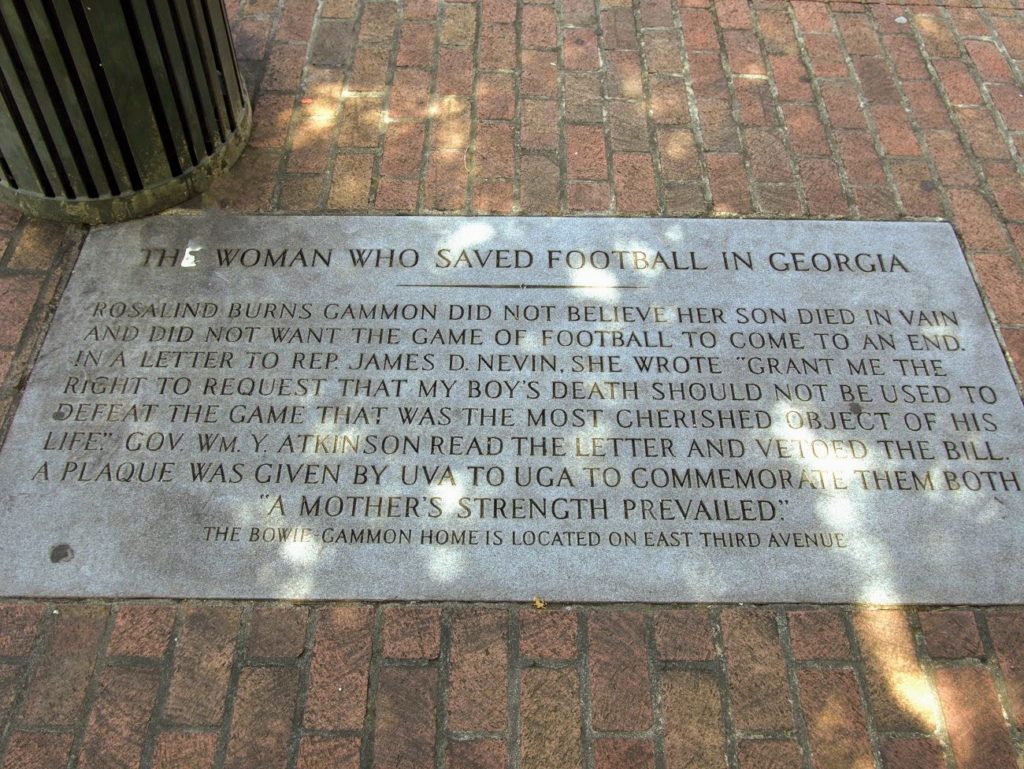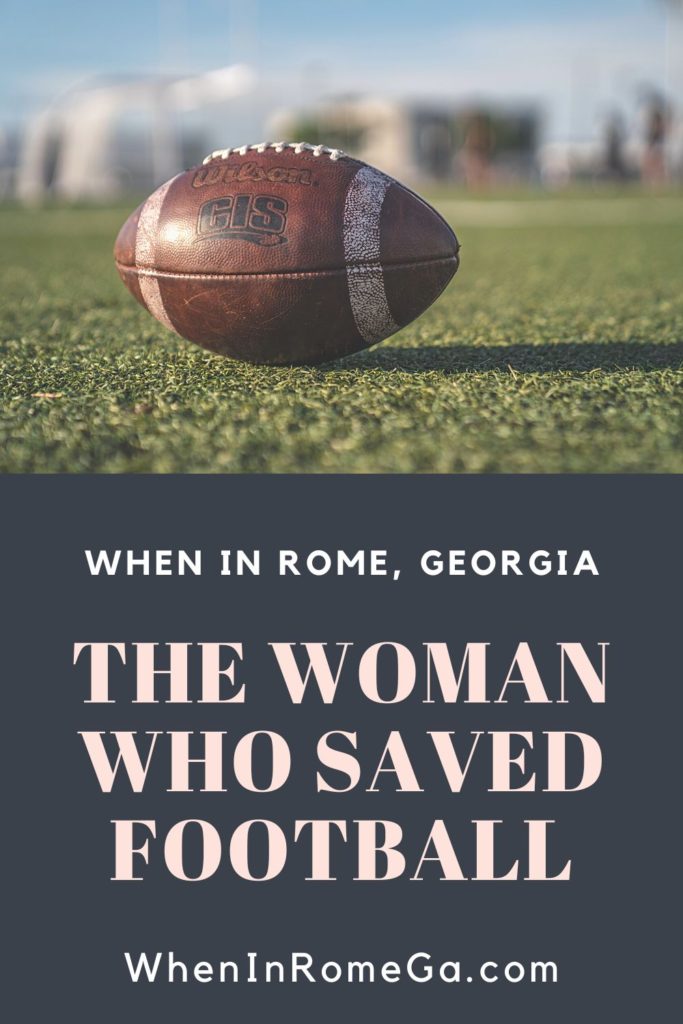While walking along the sidewalks on Broad Street in Rome, Georgia, you may have noticed a plaque embedded on the ground at Broad and 4th Ave. The plaque marks a significant moment in the history of football. It tells about The Woman Who Saved Football and her ties to Rome, Georgia. At one time, football was under scrutiny and threatened to be banned.

It was October 30th, 1897, and the University Of Georgia was playing the University Of Virginia. A Rome teenager and football star, Richard Von Albade Gammon, played in the game. He was a fullback for the University Of Georgia. While playing in this highly anticipated game, Gammon sustained injuries. Gammon, not realizing how bad the damage was and determined not to let his team down, went back to the field, where he collapsed. He was taken to Grady Memorial Hospital in Atlanta, where he died early the following day.
Gammon’s death caused so much uproar that the Georgia Legislature passed a bill to ban football in Georgia. The bill only needed the signature of Georgia Governor William Yates Atkinson, who was in attendance at the game that dreadful night. His signature would make the bill a law, affecting football as we know it today.
Gammon’s mother, Rosalind Burns Gammon, wrote a letter to Georgia Representative James Nevin that saved football. While her son’s death was tragic, she didn’t feel the sport should be outlawed. Her letter found its way to Governor Atkinson. It stressed that while others had died in different sporting accidents, those sports had not been banned, and she didn’t think Georgia should ban football despite her son’s death. Governor Atkinson vetoed the bill, and Rosalind Burns Gammon became the “Woman That Saved Football.”
Richard Von Albade Gammon was born in Rome, Georgia, on December 4th, 1879, and lived downtown on 3rd Avenue. He is remembered for his tragic death, and his mother is forever remembered as “The Woman Who Saved Football.”
So, the next time you are in Downtown Rome on Broad Street, look for the plaque honoring Rosalind Burns Gammon and remember how she was instrumental in preventing legislation that would have banned football in Georgia. You can also find out more information at the Rome Area History Museum.
Learn more about historical markers and landmarks on Broad Street in A Historical Tour Of Broad Street.





